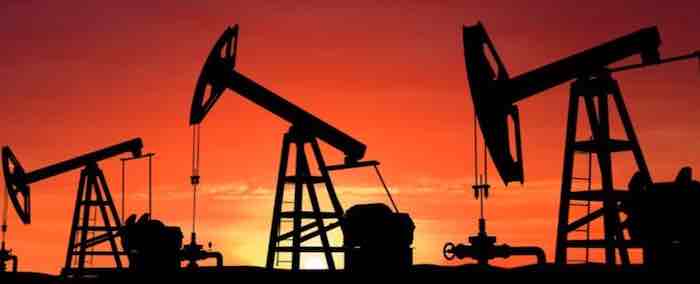By Dan Calabrese ——Bio and Archives--December 12, 2017
American Politics, News | CFP Comments | Reader Friendly | Subscribe | Email Us
 There are actually people who think it's a bad thing if oil prices drop, and this includes people in the American foreign policy establishment. They worry that low prices will "destabilize" (they use that word a lot) geopolitical structures and force the long-time status quo into question.
They're half right. Low oil prices can do all of this. But where they're wrong is in thinking it's a bad thing.
Since taking office, one of President Trump's most important policy decisions has been to take the shackles off U.S. domestic energy production, which we've told you before has had the effect of strengthening the U.S. position in global energy markets while lowering prices worldwide. Now we're seeing another impact of this policy. Many of the bad actors of the world, who depended on artificially high oil prices to fund their regimes, are in a world of hurt:
There are actually people who think it's a bad thing if oil prices drop, and this includes people in the American foreign policy establishment. They worry that low prices will "destabilize" (they use that word a lot) geopolitical structures and force the long-time status quo into question.
They're half right. Low oil prices can do all of this. But where they're wrong is in thinking it's a bad thing.
Since taking office, one of President Trump's most important policy decisions has been to take the shackles off U.S. domestic energy production, which we've told you before has had the effect of strengthening the U.S. position in global energy markets while lowering prices worldwide. Now we're seeing another impact of this policy. Many of the bad actors of the world, who depended on artificially high oil prices to fund their regimes, are in a world of hurt:The consequences reverberate in the Middle East and beyond. Future oil revenues to countries like Saudi Arabia, Iran, Venezuela, Russia and Iraq will fall trillions of dollars short of what once might have been expected. The shift in energy markets will benefit consumer economies like Japan, China, India and the nations of the European Union. The U.S. and similarly situated nations, like Australia and Canada, can look forward to faster growth and greater foreign investment, since they will capture much of the oil revenue that Russia and OPEC lose. Low energy prices already have given the EU’s struggling southern countries a chance to return to growth. They have limited Russia’s prospects and forced Vladimir Putin onto a tight budget. They have largely offset the gains Iran had hoped to make from signing the nuclear deal and escaping Western sanctions. But the greatest consequences are being felt in the Arab world, where the long-term decline in oil revenues threatens the stability of many states. It is not only the oil producers that will suffer; the prosperous Gulf economies have been a major source of opportunity for Egyptians, Pakistanis, Palestinians and many other Middle Easterners. The shining cities that rise where the desert meets the Gulf may be in for harder times. The sheikhdoms’ glassy skyscrapers, gleaming malls and opulent apartment complexes were conceived for a world in which runaway energy demand and limited sources (remember “peak oil”?) led to inexorably rising prices. These fragile and artificial economies require hothouse conditions that a weakened OPEC can no longer provide. Now the great Gulf Bubble seems set to slowly deflate. There’s more. The staggering affluence of the Gulf countries during the OPEC era concealed the Arab world’s failure to develop states and economies capable of competing effectively in the 21st century. As their dream of revival through oil riches fades, they are waking to a new era of weakness and dependency.
View Comments
Dan Calabrese’s column is distributed by HermanCain.com, which can be found at HermanCain
Follow all of Dan’s work, including his series of Christian spiritual warfare novels, by liking his page on Facebook.